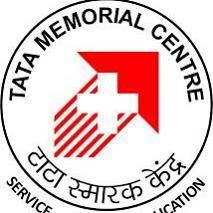预约演示
更新于:2025-05-07
TWEAK
更新于:2025-05-07
基本信息
别名 APO3 ligand、APO3L、DR3LG + [9] |
简介 Binds to FN14 and possibly also to TNRFSF12/APO3. Weak inducer of apoptosis in some cell types. Mediates NF-kappa-B activation. Promotes angiogenesis and the proliferation of endothelial cells. Also involved in induction of inflammatory cytokines. Promotes IL8 secretion. |
关联
5
项与 TWEAK 相关的药物作用机制 ADAM8 antagonists [+8] |
在研适应症 |
非在研适应症- |
最高研发阶段临床1/2期 |
首次获批国家/地区- |
首次获批日期1800-01-20 |
靶点 |
作用机制 TWEAK调节剂 |
非在研适应症- |
最高研发阶段临床前 |
首次获批国家/地区- |
首次获批日期1800-01-20 |
作用机制 FGF14抑制剂 [+1] |
在研适应症 |
非在研适应症- |
最高研发阶段临床前 |
首次获批国家/地区- |
首次获批日期1800-01-20 |
11
项与 TWEAK 相关的临床试验NCT05610735
Combination Therapy with Liposomal Doxorubicin and Withaferin a (Ashwagandha, ASWD) in Recurrent Ovarian Cancer
The proposed study "combination therapy with liposomal doxorubicin and withaferin A (Ashwagandha, ASWD) in recurrent ovarian cancer" is focused to determine the feasibility and maximum tolerance dose of Ashwagandha with liposomal doxorubicin (DOXIL) in recurrent ovarian cancer patients. The study contains two parts. In part 1 (phase I), 18 patients with recurrent ovarian cancer eligible for DOXIL therapy will be recruited and three doses of Ashwagandha (2.0 g, 4.0 g and 8.0 g) in the form of tablets along with DOXIL will be evaluated for feasibility and tolerance of ASWD. In part 2 (phase II), 54 patients with recurrent ovarian cancer will be recruited and treated with DOXIL and Ashwagandha (dose determined from part 1) to evaluate the complete response (CR), partial response (PR), and stable disease (SD).
开始日期2024-09-25 |
申办/合作机构 |
CTRI/2023/07/055361
A Phase II Clinical Trial of Standardized Withaferin-A for the treatment of Steroid Refractory acute Graft versus Host Disease.
开始日期2023-07-31 |
申办/合作机构 |
PER-086-13
A DOSE-BLINDED, 2-DOSE LEVEL, PARALLEL-GROUP, MULTICENTER, LONG-TERM EXTENSION STUDY TO EVALUATE THE LONG-TERM SAFETY, EFFICACY, AND IMMUNOGENICITY OF BIIB023 IN SUBJECTS WITH LUPUS NEPHRITIS
开始日期2014-06-26 |
申办/合作机构 |
100 项与 TWEAK 相关的临床结果
登录后查看更多信息
100 项与 TWEAK 相关的转化医学
登录后查看更多信息
0 项与 TWEAK 相关的专利(医药)
登录后查看更多信息
1,077
项与 TWEAK 相关的文献(医药)2025-12-31·Future Science OA
TWEAK/Fn14 axis may promote vascular smooth muscle cell senescence via p38 signaling pathway: preliminary evidence
Article
作者: Wei, Chunyang ; Wang, Yanfu ; Miao, Zhuang ; Qi, Guoxian ; Liu, Xiaoying ; Zhang, Hua
2025-05-01·Journal of Chromatography B
Genome-wide association analysis identified inflammatory mechanisms mediating the effects of lipid metabolism on endometrial carcinoma in situ
Article
作者: Lang, Tingyu ; Liang, Xiaolei ; Yang, Yongxiu ; Hua, Shaoqi
2025-05-01·Tuberculosis
Customized MHC Class I & II restricted peptides from clinical isolates of Mycobacterium tuberculosis tweak strong cellular immune response in Healthy individuals and Pulmonary Tuberculosis patients: A potential candidate in vaccine design
Article
作者: Sharma, Bhawna ; Joshi, Beenu ; Prakash, Hridayesh ; Sharma, Niharika ; Kumar, Santosh ; Mohanty, Keshar Kunja
13
项与 TWEAK 相关的新闻(医药)2025-02-16
·小药说药
-01-
前言
细胞因子是免疫细胞用来协调免疫反应的细胞间通讯因子。大多数细胞因子以自分泌或旁分泌的方式起作用,单一细胞因子可以根据存在的细胞类型和表达同源受体发挥多效性作用。它们既能激活抗肿瘤免疫(如IFN-γ、IL-12),也能被肿瘤“劫持”以促进免疫逃逸(如TGF-β、IL-10)。因此,细胞因子可以显著影响肿瘤中存在的许多细胞类型,并影响癌症的结果。
使用细胞因子阻断或使用细胞因子本身作为癌症治疗手段具有巨大的吸引力。近年来,靶向细胞因子的疗法在实体瘤和血液肿瘤中展现巨大潜力,IFNα和IL-2是最早获批的细胞因子药物。目前研究主要集中在工程化改造(如IL-2突变体、抗体-细胞因子融合蛋白)以提高疗效并减少毒性。本文系统梳理细胞因子在癌症中的核心作用,为理解其治疗潜力提供全面视角。
-02-
细胞因子信号通路
细胞因子通过特定受体激活下游信号通路,驱动基因表达和细胞行为:
JAK-STAT通路
JAK-STAT通路是IL-2、IFN-γ等细胞因子的核心传导机制,IL-2、IFN-γ等结合受体后,激活JAK激酶,磷酸化STAT蛋白入核调控靶基因(如促炎因子、抗凋亡蛋白)。
TGF-β通路
TGF-β通过Smad蛋白抑制早期肿瘤生长,但在晚期促进EMT(上皮-间质转化)和免疫抑制(上调PD-L1、募集Treg)。
TNF和IL-1家族通路
TNF信号通过激活NF-κB,一方面诱导炎症和血管生成,另一方面在特定条件下触发肿瘤细胞凋亡。此外,IL-1家族依赖MyD88接头蛋白激活MAPK通路,增强促炎因子释放,形成免疫抑制微环境。
信号通路的复杂性使得靶向治疗需精准调控,例如JAK抑制剂可阻断IL-6的促癌作用,但可能削弱IFN-γ的抗肿瘤效果。
-03-
先天免疫细胞因子
先天性炎症细胞因子IL-1β、TNF-a和IL-6主要由髓系细胞对病原体的反应产生。它们引发炎症,其特征是血管通透性增加,中性粒细胞和单核细胞从循环中募集。慢性炎症会促进肿瘤,所有三种先天性炎症细胞因子都与小鼠和人类的肿瘤发生有关。上皮细胞表达这些细胞因子的受体,可以直接诱导NF-kB或STAT3信号传导,从而为早期肿瘤细胞提供生长和存活信号。
IL-1β由NLRP3炎症小体激活,促进血管生成(VEGF上调)和转移(MMP分泌)。IL-1β抑制剂Canakinumab在CANTOS试验中使肺癌发病率降低67%。IL-6通过STAT3促进肿瘤干细胞自我更新,并与CRP水平正相关,是恶病质和化疗抵抗的标志物。IL-6阻断有助于抑制T细胞激活下游的髓系细胞激活,并可用于减轻强力免疫疗法(如CAR-T)的细胞因子风暴效应。TNF-α具有双重性:高浓度时可诱导肿瘤细胞凋亡,但慢性低浓度环境反而激活NF-κB,促进炎症和细胞存活。目前正在进行一项临床试验,将TNF-a阻断与抗PD-1和LAG-3联合应用于黑色素瘤,以探索TNF-a在人类抗肿瘤免疫中的作用。
-04-
干扰素和IL-12
干扰素(IFN)和IL-12是抗肿瘤免疫的核心介质。I型IFN(α/β) 通过激活树突状细胞(DC)和增强抗原呈递,促进CD8+ T细胞应答。IFN-γ(II型)可直接抑制肿瘤增殖,并通过上调MHC-I表达增强免疫识别。在癌症中,III型IFN的研究很少。然而,有证据表明,它们也参与了一些抗肿瘤免疫反应。过表达IFN-λ的小鼠肿瘤增加了MHC-I表达,增加了肿瘤浸润淋巴细胞,降低了体内生长和转移。
IL-12是最强效的Th1极化因子,它能够诱导自然杀伤(NK)细胞和T细胞产生 IFN-γ,并将 CD4+T细胞极化为产生 IFN-γ的Th1表型。但其全身毒性限制了临床应用;局部递送或联合检查点抑制剂可能提高安全性。
-05-
IL-2家族
IL-2家族(IL-2、IL-15、IL-21)在T细胞发育和扩增中起重要作用,IL-15与IL-2具有许多共同的生物学活性,包括刺激T细胞和NK细胞的增殖和活化、诱导B细胞免疫球蛋白合成和支持细胞毒性效应细胞分化。IL-2是这个家族中第一个被鉴定的细胞因子,它最初是从活化的人类T细胞培养上清中发现的,是一种介导T细胞增殖的可溶性因子。IL-2也是FDA批准用于癌症治疗的第一种细胞因子。虽然在抗原刺激下主要由CD4+和CD8+T细胞分泌,但活化的树突状细胞、肥大细胞和NKT细胞也产生少量的IL-2。基于IL-2和IL-15在体内扩增和激活效应淋巴细胞的能力,它们的治疗潜力正在不断被开发。同时,在协同免疫增强的联合策略中它们的作用也越来越受到关注。
-06-
TGF-β
转化生长因子-β(TGF-β)是一种最有效和多效性的调节性细胞因子,它几乎控制着肿瘤引起的免疫反应的每个阶段,从初级淋巴器官中的淋巴细胞发育到次级淋巴器官淋巴白细胞的启动,以及针对肿瘤自身的效应器功能。
TGF-β在癌症中呈现阶段依赖性作用。早期通过抑制细胞周期蛋白抑制肿瘤生长,晚期则通过诱导EMT和激活成纤维细胞促进转移。其信号通过SMAD2/3磷酸化传递,并与Wnt通路交互增强干细胞特性。TGF-β还可抑制CD8+ T细胞功能,并与化疗耐药相关。目前,TGF-β抑制剂与PD-1抗体联用正在临床试验中,旨在逆转免疫抑制微环境。
联合策略中它们的作用也越来越受到关注。
-07-
TNF超级家族和死亡配体
TNF超家族包括一大类死亡受体(如FASL、TRAIL、TWEAK),可诱导外源性细胞凋亡。这些受体的配体可以在T细胞和NK细胞上表达,但它们也可以通过ADAM家族蛋白酶从细胞表面脱落,并以可溶性方式作用于肿瘤细胞。研究最多的死亡受体-配体对是FAS-FASL,它参与CD8+
T细胞的细胞毒性。可溶性细胞因子TRAIL与肿瘤细胞上的DR4或DR5结合,诱导caspase-8激活选择性杀伤肿瘤细胞,但其耐药性普遍存在。TWEAK通过其受体TWEAKR在大多数细胞中诱导细胞凋亡,但它也可以导致内皮细胞中的NF-κB信号传导和增殖,从而促进血管生成。
-08-
免疫调节细胞因子
IL-27、IL-10和IL-35等免疫调节细胞因子通过抑制炎症发挥免疫调节作用。IL-27是由IL27p28和EBI3组成的二聚体细胞因子,由DC和其他抗原呈递细胞产生,主要作用是限制失控的T细胞激活和限制组织损伤性中性粒细胞流入;IL-10由Treg和M2巨噬细胞分泌,抑制DC成熟和Th1应答,但也可增强CD8+
T细胞记忆;IL-35由Treg分泌,直接抑制效应T细胞增殖并促进Treg扩增。靶向这些因子的抗体可解除免疫抑制,但也可能引发过度炎症。
-09-
Th17细胞因子
Th17反应通常发生在屏障部位,激活上皮层产生抗菌肽和粘液有助于保持屏障完整性并阻止病原体进入。中性粒细胞募集也是Th17反应的标志,这在抗真菌免疫中很重要。然而在癌症中,IL-17 诱导的明显炎症以及随后的中性粒细胞募集是有害的,会导致组织破坏和促肿瘤炎症。IL-17也可以直接作用于表达KRAS的突变肿瘤细胞,直接加速肿瘤发生。
抗原呈递细胞产生的IL-23使CD4+
T细胞极化为产生IL-17的表型。Th17细胞则产生IL-22,这是一种直接作用于上皮细胞的细胞因子。在上皮细胞衍生的癌症中,IL-22通过STAT3发出信号,并提供与IL-6家族成员IL-6、IL-11和LIF非常相似的生长和生存信号。
-10-
Th9细胞因子
Th9细胞是在TGF-β和IL-4存在下被激活的CD4+T细胞,它们产生IL-9、IL-24和IL-10,T细胞上的IL-9信号可有效提高存活率和效应功能。最初发现Th9细胞可促进炎症,Th9细胞也可通过产生对恶性细胞具有直接细胞毒性作用的IL-24,产生抗肿瘤免疫作用。在前列腺癌模型中,IL-24降解MCL-1,然后释放BAK。IL-24还可诱导癌细胞自噬,然后凋亡。在人类中,瘤内注射经改造产生IL-24的非复制腺病毒可诱导一些肿瘤细胞死亡、β-连环蛋白丢失和外周CD8+T细胞增加,但对治疗的临床反应相当有限。
-11-
Th2细胞因子
Th2反应以嗜酸性粒细胞募集和IgE产生为特征,可导致过敏性疾病,Th2与癌症的联系很小。目前批准的所有免疫疗法都以各种方式模拟Th1反应。通常被认为可以防御毒素和多细胞寄生虫的Th2反应是否有助于抗肿瘤免疫尚不清楚。
某些组织比其他组织更容易产生Th2免疫,这可能是由于ILC2细胞的存在。在肺和乳腺中,TSLP诱导的分泌IL-3、IL-5和GM-CSF的CD4+T细胞可能在早期肿瘤中起作用,以防止向癌细胞分化。Th2细胞因子IL-4可直接作用于CD8+T细胞,以维持小鼠癌症模型中的效应器功能。在胰腺中,胰腺炎是由Th2免疫驱动的,早期诱导FOXP3+Tregs可抑制促肿瘤炎症并延迟致癌。一些研究报告了Th2细胞因子的促肿瘤作用,可能通过嗜酸性粒细胞和嗜碱性粒细胞对造血的影响。
-12-
生长因子
纤维化组织可以向骨髓发出信号,以补充单核细胞和中性粒细胞的产生。这种能力在进化上有利于伤口愈合和先天免疫细胞的恢复,以进行宿主防御。然而,癌症与这些途径相结合,慢性诱导骨髓中髓细胞的产生,将其招募到肿瘤中,并在肿瘤微环境中维持其免疫抑制和生长促进功能。
在四种集落刺激因子(G-CSF、GM-CSF、M-CSF和IL-3)中,只有G-CSF和M-CSF是正常造血所必需的。作为巨噬细胞的关键存活因子,巨噬细胞对M-CSF的依赖性可导致与癌细胞或成纤维细胞的共生关系,从而使巨噬细胞分泌TGF-β以接受M-CSF作为回报。通过阻断M-CSF或其受体CSF1R的小分子抑制剂可以消耗肿瘤相关巨噬细胞,但同时也会产生毒性,导致成纤维细胞产生的趋化因子增加,粒细胞增加。另一方面,GM-CSF和IL-3是在紧急骨髓生成过程中产生的,并且在癌症中显著上调。IL-3诱导中性粒细胞、单核细胞、嗜酸性粒细胞和嗜碱性粒细胞的产生,与白喉毒素偶联的IL-3通过靶向CD123杀伤肿瘤,已获得FDA局的批准。
-13-
趋化因子
趋化因子是负责免疫细胞运输和淋巴组织发育的细胞因子亚家族。目前,据报道有50种不同的趋化因子,每个免疫细胞亚群都有不同的趋化因子受体表达模式,这使得它们对趋化因子有不同的反应,并根据每个环境的特殊需要迁移。在癌症中,它们在免疫细胞迁移到肿瘤中的模式中起着关键作用,从而形成肿瘤微环境的免疫特征,通常朝向促肿瘤形成状态。
此外,趋化因子可以直接靶向肿瘤微环境中的非免疫细胞,包括肿瘤细胞、基质细胞和血管内皮细胞。因此,趋化因子参与多种癌症发展过程,如血管生成、转移、癌细胞增殖、干性和侵袭性,是疾病进展的关键决定因素,对患者预后和治疗反应有很大影响。由于它们在癌细胞和免疫浸润细胞中重要的调节功能,使得趋化因子配体及其受体成为非常强大的治疗靶点。
目前,临床已批准的靶向趋化因子的药物包括抗CCR4抗体(Mogamulizumab)和CXCR4拮抗剂(Plerixafor,AMD3100),用于血液恶性肿瘤。此外,还有更多的针对不同趋化因子受体-配体轴作为癌症治疗策略的多种努力,这些治疗策略目前已表现出巨大的潜力,正处于临床开发中。
-14-
小结
细胞因子在癌症中构成复杂的调控网络,其双重作用要求精准干预。未来研究需结合微环境时空特性,开发特异性靶向策略(如局部递送、工程化变体),并探索联合疗法以克服耐药性。尽管挑战重重,细胞因子仍是癌症免疫治疗的重要突破口。
参考文献:
Cytokines
in cancer. Cancer Cell. 2025 Jan 13;43(1):15-35.
公众号内回复“ADC”或扫描下方图片中的二维码免费下载《抗体偶联药物:从基础到临床》的PDF格式电子书!
公众号已建立“小药说药专业交流群”微信行业交流群以及读者交流群,扫描下方小编二维码加入,入行业群请主动告知姓名、工作单位和职务。
免疫疗法细胞疗法临床研究
2025-02-13
2月11日,中山大学/中国科学院杭州医学研究所研究人员合作共同在期刊《Clinical And Translational Medicine》上发表了研究论文,题为“Immune profiling of the macroenvironment in colorectal cancer unveils systemic dysfunction and plasticity of immune cells”,本研究中,基于细胞表型和转录情况,研究人员在结直肠癌(CRC)的宏观环境中识别出不同的免疫类型。此外,研究人员还评估了影响免疫宏观环境的因素,包括三级淋巴结构(TLSs)、共识分子亚型(CMSs)和免疫检查点抑制剂(ICIs)。TLS 的存在通过促进 CD8+ T 细胞浸润以及系统性改变 T 细胞的激活或抑制来增强抗肿瘤免疫。TLS 的存在与患者的生存率、内在 CMS 以及 ICI 的治疗效果相关。血液中效应记忆 CD8+ T 细胞表达的 PD-1 和 CD69 可以预测 CRC 宏观环境中 TLS 的存在,可作为将 CRC 患者分层进行免疫治疗的潜在生物标志物。
2月11日,中山大学/中国科学院杭州医学研究所研究人员合作共同在期刊《Clinical And Translational Medicine》上发表了研究论文,题为“Immune profiling of the macroenvironment in colorectal cancer unveils systemic dysfunction and plasticity of immune cells”,本研究中,基于细胞表型和转录情况,研究人员在结直肠癌(CRC)的宏观环境中识别出不同的免疫类型。此外,研究人员还评估了影响免疫宏观环境的因素,包括三级淋巴结构(TLSs)、共识分子亚型(CMSs)和免疫检查点抑制剂(ICIs)。TLS 的存在通过促进 CD8+ T 细胞浸润以及系统性改变 T 细胞的激活或抑制来增强抗肿瘤免疫。TLS 的存在与患者的生存率、内在 CMS 以及 ICI 的治疗效果相关。
血液中效应记忆 CD8+ T 细胞表达的 PD-1 和 CD69 可以预测 CRC 宏观环境中 TLS 的存在,可作为将 CRC 患者分层进行免疫治疗的潜在生物标志物。
https://onlinelibrary-wiley-com.libproxy1.nus.edu.sg/doi/full/10.1002/ctm2.70175
https://onlinelibrary-wiley-com.libproxy1.nus.edu.sg/doi/full/10.1002/ctm2.70175
结直肠癌(CRC)一直是全球最常见的癌症之一,据估计 2022 年全球病例数约为 1926136 例,且死亡率较高。目前的治疗方法包括手术、化疗和放疗,这些方法显著提高了 CRC 患者的生存率。然而,尽管大多数早期 CRC 患者可以治愈,但复发和远处转移的发生率仍然很高。在过去 10 年中,基于免疫检查点抑制剂(ICIs)的新辅助治疗显示出良好的治疗效果。大约 70% - 80% 的错配修复缺陷(dMMR)CRC 患者对 ICI 治疗表现出病理完全缓解(pCR)。然而,CRC 是一种异质性疾病,预测 ICI 反应的生物标志物尚未完全阐明。目前,MSI-H 会导致体细胞突变的积累,但仅占 CRC 患者的约 15%。尽管 PD-L1 联合阳性评分(CPS)已在临床实践中得到应用,但有报道称免疫检查点抑制剂(ICI)治疗的生存获益与 PD-L1 阳性无关。肿瘤突变负荷(TMB)高的肿瘤对 ICI 治疗显示出积极的治疗效果。然而,TMB 是通过基因组测序鉴定出的体细胞突变总数来计算的,这给测量带来了障碍。肿瘤微环境(TME)是一个由免疫细胞、基质细胞和细胞外成分组成的生态系统,它组织周围的结构,同时也决定肿瘤的进展以及治疗响应。最近,大量研究揭示了 TME 的异质性,并开发了诸如 TME 评分等新兴模型,可用于识别 ICI 的应答者。然而,由于这些生物标志物的测量存在局限性,结直肠癌(CRC)的免疫特征仍需进一步阐明,多维度生物标志物的发现对于精准的 ICI 治疗不可或缺。
结直肠癌(CRC)一直是全球最常见的癌症之一,据估计 2022 年全球病例数约为 1926136 例,且死亡率较高。目前的治疗方法包括手术、化疗和放疗,这些方法显著提高了 CRC 患者的生存率。然而,尽管大多数早期 CRC 患者可以治愈,但复发和远处转移的发生率仍然很高。在过去 10 年中,基于免疫检查点抑制剂(ICIs)的新辅助治疗显示出良好的治疗效果。大约 70% - 80% 的错配修复缺陷(dMMR)CRC 患者对 ICI 治疗表现出病理完全缓解(pCR)。然而,CRC 是一种异质性疾病,预测 ICI 反应的生物标志物尚未完全阐明。目前,MSI-H 会导致体细胞突变的积累,但仅占 CRC 患者的约 15%。尽管 PD-L1 联合阳性评分(CPS)已在临床实践中得到应用,但有报道称免疫检查点抑制剂(ICI)治疗的生存获益与 PD-L1 阳性无关。肿瘤突变负荷(TMB)高的肿瘤对 ICI 治疗显示出积极的治疗效果。然而,TMB 是通过基因组测序鉴定出的体细胞突变总数来计算的,这给测量带来了障碍。肿瘤微环境(TME)是一个由免疫细胞、基质细胞和细胞外成分组成的生态系统,它组织周围的结构,同时也决定肿瘤的进展以及治疗响应。最近,大量研究揭示了 TME 的异质性,并开发了诸如 TME 评分等新兴模型,可用于识别 ICI 的应答者。然而,由于这些生物标志物的测量存在局限性,结直肠癌(CRC)的免疫特征仍需进一步阐明,多维度生物标志物的发现对于精准的 ICI 治疗不可或缺。
全球细胞间通讯揭示了 SPP1-CD44 相互作用在结直肠癌微环境中的免疫抑制作用
全球细胞间通讯揭示了 SPP1-CD44 相互作用在结直肠癌微环境中的免疫抑制作用
01
01
研究人员揭示了结直肠癌(CRC)微环境中紊乱的免疫细胞组成以及 T 细胞免疫抑制标志物表达的增加。接下来,研究人员分析了肿瘤发生条件下细胞间通讯的变化,并基于肿瘤、腺瘤和分层正常肠样本的单细胞 RNA 测序(scRNA-seq)数据集,试图解释占主导地位的免疫抑制调节机制。来自上皮层的免疫细胞间相互作用数量相对较低,仅检测到 T 细胞和 B 细胞亚群之间的相互作用。此外,在除上皮层外的所有样本中,CD4+ T 细胞参与的相互作用最多。研究人员还评估了通讯网络中的主要来源和靶点,突出了特定细胞类型在细胞间通讯中的重要作用。
研究人员揭示了结直肠癌(CRC)微环境中紊乱的免疫细胞组成以及 T 细胞免疫抑制标志物表达的增加。接下来,研究人员分析了肿瘤发生条件下细胞间通讯的变化,并基于肿瘤、腺瘤和分层正常肠样本的单细胞 RNA 测序(scRNA-seq)数据集,试图解释占主导地位的免疫抑制调节机制。来自上皮层的免疫细胞间相互作用数量相对较低,仅检测到 T 细胞和 B 细胞亚群之间的相互作用。此外,在除上皮层外的所有样本中,CD4+ T 细胞参与的相互作用最多。研究人员还评估了通讯网络中的主要来源和靶点,突出了特定细胞类型在细胞间通讯中的重要作用。
结直肠癌(CRC)微环境中细胞间通讯表明 SPP1-CD44 相互作用具有免疫抑制功能
结直肠癌(CRC)微环境中细胞间通讯表明 SPP1-CD44 相互作用具有免疫抑制功能
接下来,研究人员总结了每个部位信号通路的相互作用图谱。某些相互作用仅在特定位置发生,例如在黏膜下层中,CALCR、RANKL 和 TWEAK 的信号通路;在腺瘤中,GDNF、GDF、IL12、CD30 和 CD137 的信号通路;在肿瘤中,PD-L1、GP1BA、RESISTIN 和 SPP1 的信号通路。
接下来,研究人员总结了每个部位信号通路的相互作用图谱。某些相互作用仅在特定位置发生,例如在黏膜下层中,CALCR、RANKL 和 TWEAK 的信号通路;在腺瘤中,GDNF、GDF、IL12、CD30 和 CD137 的信号通路;在肿瘤中,PD-L1、GP1BA、RESISTIN 和 SPP1 的信号通路。
为了识别肿瘤微环境(TME)中的重连互作,研究人员确定了肿瘤与腺瘤之间不同的细胞间互作,发现肿瘤中巨噬细胞与 CD8+ T 细胞的互作上调。接下来,研究人员对 SPP1-CD44 互作进行了原位研究。通过整合单细胞 RNA 测序(scRNA-seq)和空间转录组测序(ST-seq)数据,巨噬细胞在肿瘤细胞周围的斑点中富集,这一点通过 SPP1 的表达得到了验证。CD44 在几乎所有区域都高度表达。研究人员进一步研究了每个斑点中巨噬细胞丰度与 SPP1-CD44 互作强度之间的相关性。研究表明巨噬细胞在 TME 中表达 SPP1,并通过 SPP1-CD44 轴与肿瘤周围的其他细胞类型发生互作。此外,研究人员观察到 SPP1+巨噬细胞与斑点中 CD8+T 细胞、CD4+调节性 T 细胞以及 Th17 细胞的丰度之间存在相关性,这与细胞间网络中 SPP1-CD44 相互作用的结果一致。多重免疫组化(mIHC)还表明 CD44+CD4+或 CD44+CD8+T 细胞与 SPP1+CD68+巨噬细胞共定位。总的来说,研究人员揭示了结直肠癌(CRC)微环境中免疫细胞的差异相互作用模式,并确定 SPP1-CD44 相互作用是由 SPP1+巨噬细胞介导的关键免疫抑制协调机制。这些免疫细胞的特定细胞间通讯表征了每个位置的免疫谱,而重新连接的相互作用可能是免疫检查点抑制剂(ICI)治疗的潜在靶点。(转化医学网360zhyx.com)
为了识别肿瘤微环境(TME)中的重连互作,研究人员确定了肿瘤与腺瘤之间不同的细胞间互作,发现肿瘤中巨噬细胞与 CD8+ T 细胞的互作上调。接下来,研究人员对 SPP1-CD44 互作进行了原位研究。通过整合单细胞 RNA 测序(scRNA-seq)和空间转录组测序(ST-seq)数据,巨噬细胞在肿瘤细胞周围的斑点中富集,这一点通过 SPP1 的表达得到了验证。CD44 在几乎所有区域都高度表达。研究人员进一步研究了每个斑点中巨噬细胞丰度与 SPP1-CD44 互作强度之间的相关性。研究表明巨噬细胞在 TME 中表达 SPP1,并通过 SPP1-CD44 轴与肿瘤周围的其他细胞类型发生互作。此外,研究人员观察到 SPP1+巨噬细胞与斑点中 CD8+T 细胞、CD4+调节性 T 细胞以及 Th17 细胞的丰度之间存在相关性,这与细胞间网络中 SPP1-CD44 相互作用的结果一致。多重免疫组化(mIHC)还表明 CD44+CD4+或 CD44+CD8+T 细胞与 SPP1+CD68+巨噬细胞共定位。总的来说,研究人员揭示了结直肠癌(CRC)微环境中免疫细胞的差异相互作用模式,并确定 SPP1-CD44 相互作用是由 SPP1+巨噬细胞介导的关键免疫抑制协调机制。
这些免疫细胞的特定细胞间通讯表征了每个位置的免疫谱,而重新连接的相互作用可能是免疫检查点抑制剂(ICI)治疗的潜在靶点。(转化医学网360zhyx.com)
【参考资料】
【参考资料】
https://onlinelibrary-wiley-com.libproxy1.nus.edu.sg/doi/full/10.1002/ctm2.70175
https://onlinelibrary-wiley-com.libproxy1.nus.edu.sg/doi/full/10.1002/ctm2.70175
【关于投稿】
【关于投稿】
转化医学网(360zhyx.com)是转化医学核心门户,旨在推动基础研究、临床诊疗和产业的发展,核心内容涵盖组学、检验、免疫、肿瘤、心血管、糖尿病等。如您有最新的研究内容发表,欢迎联系我们进行免费报道(公众号菜单栏-在线客服联系),我们的理念:内容创造价值,转化铸就未来!
转化医学网(360zhyx.com)是转化医学核心门户,旨在推动基础研究、临床诊疗和产业的发展,核心内容涵盖组学、检验、免疫、肿瘤、心血管、糖尿病等。如您有最新的研究内容发表,欢迎联系我们进行免费报道(公众号菜单栏-在线客服联系),我们的理念:内容创造价值,转化铸就未来!
转化医学网(360zhyx.com)发布的文章旨在介绍前沿医学研究进展,不能作为治疗方案使用;如需获得健康指导,请至正规医院就诊。
转化医学网(360zhyx.com)发布的文章旨在介绍前沿医学研究进展,不能作为治疗方案使用;如需获得健康指导,请至正规医院就诊。
免疫疗法
2025-01-02
·生物谷
文章解读+创新点拓展,为您带来科研新体验~
导读
在生物学研究中,理解细胞间的通信机制对于揭示复杂生物过程至关重要。近日,《Nature Methods》上发表的一项突破性研究《Inferring pattern-driving intercellular flows from single-cell and spatial transcriptomics》引入了一种名为FlowSig的新方法,该方法通过单细胞RNA测序(scRNA-seq)和空间转录组学(ST)数据推断由通信驱动的细胞间信息流。这项技术不仅为科学家们提供了深入洞察细胞内部运作的新视角,也为临床医生带来了探索疾病发生发展机制的新工具。
研究背景
细胞通过生化信号相互交流以组织生物活动,这些时空流动的“因果”关系推动着每一个生物学进程。然而,传统的分析方法往往将细胞间通信视为独立事件,忽略了其与细胞内基因调控模块之间的关联。为了填补这一空白,研究人员开发了FlowSig,这是一种基于图形因果模型和条件独立性的新方法,它能够从scRNA-seq或ST数据中推断出由通信驱动的细胞间信息流。
研究设计与结果
FlowSig的核心在于建模细胞间信息流动,即从流入的细胞间信号到捕捉细胞内调节响应的基因表达模块(gene expression module,GEM),再到流出的细胞间信号。具体而言,FlowSig利用额外的扰动数据和下游转录因子靶点路径知识来学习准确的细胞间流动。当处理难以精确推断配体-受体相互作用的数据时,FlowSig结合“对照vs.扰动”实验提供的信息,使用差异表达分析和条件不变性测试推断最可能驱动细胞间流动的输入输出变量集合。此外,FlowSig还支持从空间转录组学数据直接推断每个空间位置接收到的流入信号量,从而无需额外的扰动数据即可推断细胞间流动。
在验证过程中,研究人员首先使用合成数据集进行测试,确保FlowSig能正确反映数学模型模拟出的细胞间流动特征。随后,他们应用FlowSig分析了新生成的皮质类器官实验数据,展示了该方法捕捉刺激诱导变化、展现因COVID-19严重程度增加而引起的细胞间流动转变以及重建小鼠胚胎发育中形态发生素驱动激活剂-抑制剂模式的能力。
图1:对FlowSig模型的描述
研究者开发了FlowSig模型,用于描绘细胞间信息流动的方向性。该模型包含从流入信号(受体基因表达量与下游转录因子基因集平均表达量的乘积Ri×TFi)到基因表达模块(即细胞成员归属至潜在GEM因子GEMi),再到流出信号(信号配体基因表达Li)的有向边(图1a)。在“对照vs.扰动”实验中,系统可能因外部刺激、疾病或时间变化而改变。FlowSig通过差异表达分析和条件不变性测试,识别出分布显著变化的流入和流出变量,以确定最有可能驱动细胞间流动的因素,从而减少数据生成的所有可能网络的数量,并构建更精确的完全部分有向无环图(completed partial directed acyclic graph,CPDAG)(图1b)。
对于难以准确推断配体-受体相互作用的情况,FlowSig能从空间转录组学数据中更精准地估算每个位置接收到的流入信号量,使得即使没有额外的扰动数据,也能推断细胞间的流动(图1c)。具体来说,FlowSig使用COMMOT推断接收的信号配体量(rec. Li),并结合空间解析的GEM(GEMi),最终关联到流出变量(Li)。
图2:FlowSig的合成验证
为了验证FlowSig的有效性,研究人员生成了基于数学模型的模拟实验数据集,用以模拟真实的细胞间流动情况。结果表明,FlowSig能够准确恢复预期的细胞间流动网络结构,证明其算法设计合理且可靠。
研究进一步探讨了SHH信号诱导的单向细胞间流动(图2a)及其对组织模式化的影响(图2b),以及SHH与BMP4之间的竞争关系(图2c)。通过量化FlowSig的真阳性率(TPR)和真阴性率(TNR),研究人员发现:在所有场景中(图2d-f),结合受体表达作为信号流入或引入扰动数据并不会改变平均TPR。使用结合受体进行流入测量显著提高了平均TNR,尤其是在复杂的多方向流动模型中,如SHH驱动的模式化以及SHH与BMP4的竞争关系(图2e,f)。
通过条件不变性测试整合扰动数据,可以减少TNR值的变化,包括四分位数范围和异常值,从而获得更精确的细胞间流动估计。这些结果显示,FlowSig有效地减少了基线GSP和UT-IGSP算法推断中的假阳性数量,提升了细胞间流动预测的准确性。
图3:使用皮层样器官模型验证FlowSig的实验验证
研究者使用皮层发育的类器官模型进一步验证了FlowSig的有效性。从人类胚胎干细胞中生成皮层类器官,并在培养第18天(D18)和第35天(D35)收集样本进行scRNA-seq分析。在该模型中,皮层身份的细胞命运于D18确定,而FGF和BMP信号响应则在D35建立。研究者将D35的数据视为对D18“对照”数据的“扰动”,模拟了这些信号通路的影响。
通过CellChat分析,识别出77个独特的配体-受体相互作用,这些相互作用在细胞间流动中扮演不同角色。FlowSig进一步筛选出26种流入的差异信号(图3a)和16种流出的差异信号(图3b),包括关键的FGF和BMP信号。研究者利用pyLIGER从2,793个高度可变基因中构建了20个GEM,并基于此构建了用于推断细胞间流动的62个变量(图3c)。
为了确定主要驱动因素,研究者根据信号流入变量的总边频次进行了排序,发现FGF、MK(中胚层因子)、PTN(多效生长因子)和NRG(神经调节素)是细胞间流动的关键驱动者。特别是FGF流入通过多个GEM驱动了BMP4、IGF-II、NGF、NRG1和NRG3等信号的流出(图3d)。此外,EOMES被确定为潜在的FGF流入调控候选者。相比之下,BMP流入通过较少的GEM被调节,且可能由PAX6或NR2F1介导(图3e)。
为了验证FlowSig分析结果,研究者在D15-D21期间分别添加FGF8b和BMP4激活相应的信号通路,并在D35时收集样品进行RT-qPCR分析。结果显示,激活FGF信号显著下调了EOMES的表达(图3f),而激活BMP信号则下调了PAX6并上调了NR2F1的表达(图3g),证实了FlowSig预测的准确性。
图4:FlowSig在胰岛扰动非空间scRNA-seq中的应用
为了验证FlowSig在恢复由外部扰动驱动的细胞间流动方面的能力,研究者分析了干扰素-γ(IFN-γ)刺激的人胰岛scRNA-seq数据。使用pyLIGER构建了10个GEM,这些模块与独立识别的5个细胞类型簇(alpha、beta1-3和delta)对齐(图4a)。基于这些细胞类型注释,CellChat推断出各细胞组之间显著的成对配体-受体相互作用。
IFN-γ刺激显著改变了多个信号通路的流入量:通过FGFR1增加了FGF信号通路的流入,通过IL-6R和IL-6ST增加了IL-6的流入,通过CD74和CD44增加了MIF的流入,通过NCL增加了MDK的流入,并通过SSTR2增加了SST的流入(图4b)。同时,IFN-γ刺激还影响了流出信号,增加了GCG、INHBA和NAMPT的流出量,减少了ANGPTL2、SPP1、TGFβ1、TNFSF12和UCN3的流出量(图4c)。FlowSig识别出FGF、IL-6、MDK和SST是主要驱动细胞间信息流动的因素,这些信号驱动了GCG、INHBA、NAMPT、SPP1、TGFβ1、TNFSF12和UCN3的流出(图4d)。
为了进一步探索IFN-γ刺激的影响,研究人员将全局细胞间流动网络分为两个子网络:上调子网络:对应于IFN-γ刺激上调的流出信号,连接到这些流出变量的GEM及相关的流入节点(图4e)。下调子网络:对应于IFN-γ下调的流出信号,以类似方式构建(图4f)。
这两个子网络共享相似的流入节点和GEM,但GEM-3仅存在于“上调”网络中,这表明它在IFN-γ刺激下具有专门的作用。GEM-3主要富集在α细胞内,表明刺激驱动了来自α细胞的GCG和NAMPT流出。其他流入信号和GEM则在两种条件下共享,显示了它们的双重调控功能。
图5:FlowSig在中度或重度COVID-19患者取样的人类BALF的scRNA-seq中的应用
为了验证FlowSig处理多个扰动的能力,研究者分析了健康对照组、中度和重度COVID-19患者支气管肺泡灌洗液(BALF)细胞的scRNA-seq数据。使用CellChat结合原始研究中的细胞类型注释,推断出显著的配体-受体相互作用,结果显示健康对照组、中度和重度COVID-19组分别有46个、55个和54个活跃信号通路。
通过pyLIGER构建了20个GEM,这些GEM捕捉了不同条件下的差异(图5a)以及细胞类型间的差异(图5b)。FlowSig识别出每种COVID-19状态相对于健康对照组特有的流入和流出信号变化(图5c)。
为了深入分析这些流出信号驱动的细胞间流动,研究者提取了每个不同流出信号集上游的流入信号及相应的GEM(图5d-f)。尽管随着COVID-19严重程度增加,不同流出信号数量增多,但推断的流入信号数量却从健康对照组的37个减少到中度患者的32个,再到重度患者的25个。类似地,调节性GEM的数量也从健康对照组的16个减少到中度患者的13个,再到重度患者的8个。这表明随着疾病进展,某些特定的细胞间通信路径逐渐丧失。
进一步分析显示,在所有三种条件下共有20个信号流入,而没有发现仅在中度或重度COVID-19中特有的流入信号。TNFRSF12A(由TNFSF12驱动)以及ITGAX和ITGB2 (由C3驱动)的流入信号仅在健康对照组中存在。CAP(来自RETN1)的流入信号则仅在中度和重度COVID-19之间共享(图5g)。
观察到的GEM趋势相似,共享程度最高的GEM是在健康和中度COVID-19群体中的7个GEM,以及在所有三个条件下的5个GEM。GEM-4和GEM-10仅在健康个体中驱动信号流出,而GEM-7(与嗜碱性粒细胞相关)仅在中度和重度COVID-19群体中共享(图5h)。
图6:FlowSig在E9.5小鼠相关性空间立体序列数据中的应用
研究者利用FlowSig对胚胎发育阶段E9.5的鼠胚进行了ST-seq数据分析,揭示了Shh(Sonic Hedgehog)和Wnt5a信号通路之间的复杂双向流动。通过非负空间分解法,研究者从712个空间可变基因中构建了20个高分辨率的空间GEM,这些GEM捕捉了细胞间通信的关键特征(图6a)。
FlowSig识别出多个Shh外流的上游驱动因子,这些因子通过特定的GEM调节Shh外流,并推断出接收的Shh内流(r-Shh)驱动多个信号配体的外流途径,涉及多个GEM(图6c)。为了进一步确定Shh外流的上游调控TF,研究者使用随机森林模型分析了前10个TF的重要性,最终识别出Foxa2、Foxp2、Myc、Zc3h7a和Foxa1为Shh外流的主要上游调控TF(图6d)。
为了识别r-Shh流入的下游靶标,研究者使用pyGAM拟合每个推断出的下游基因表达网络中前10个r-TF的表达与r-Shh流入之间的关系,并根据Spearman相关系数排序。结果显示,Barhl1、Nkx2-1、Meox1、Tcf21和Foxp2与r-Shh的相关性较低,而Foxe1、Nkx2-2、Pou3f1、Tlx2和Nkx2-4等已知靶点表现出显著相关性(图6e)。
研究者观察到Shh和Bmp4、Cxcl12、Igf2、Mdk以及Wnt5a之间可能存在双向流动。为了验证这一假设,研究者分析了各配体与其下游r-Shh流入的关系。结果显示,只有Wnt5a通过GEM-5的转录因子显著受r-Shh流入调节(图6f)。此外,研究者发现r-Wnt5a流入通过空间扩散下调Myc介导的Shh流出,形成一个激活抑制系统(图6g)。这种激活抑制系统的三个关键特征如下:1)信号传播:Shh和Wnt5a配体都能扩散;2)自我上调:Shh通过Foxa2上调自身,Wnt5a通过Foxa1、Nkx6-1 和Sox21上调自身;3)抑制机制:Wnt5a通过下调Myc来抑制Shh。
这些观察结果表明,Shh和Wnt5a之间的双向流动类似于Turing模式生成系统,该系统在发育过程中驱动细胞命运图案化。因此,在E9.5时,Shh和Wnt5a信号通路可能共同作用于胚胎发育中的细胞命运决定过程(图6h)。
综上所述,FlowSig是一款强大的细胞间通信和信息流分析工具,对于分析发育过程中以及强烈单因素(比如药物)或多因素(比如病理微环境)扰动带来的细胞间信息流变化有着非常积极的作用,有助于推动对生命科学和生物医学复杂系统过程的动态理解。
拓展延伸
FlowSig技术在其他科研领域的广泛应用前景:
● 肿瘤微环境与癌症治疗
在肿瘤学领域,单细胞RNA测序(scRNA-seq)和空间转录组学(ST)结合FlowSig方法的应用具有巨大的潜力。肿瘤不仅仅是单一类型的细胞集合,而是一个复杂的生态系统,包括癌细胞、免疫细胞、基质细胞等多种成分。通过scRNA-seq可以揭示肿瘤内部不同细胞亚群的异质性,以及它们之间的相互作用网络。例如,在乳腺癌研究中,科学家们利用scRNA-seq发现了多种肿瘤相关巨噬细胞(TAMs),这些细胞不仅促进了肿瘤生长,还影响了化疗药物的效果。借助FlowSig,研究人员能够更加细致地描绘出TAMs与其他细胞类型间的通信路径,从而找到新的治疗靶点或预测患者的预后。
此外,空间转录组学数据提供了额外的空间维度信息,这对于理解肿瘤组织内的结构特征至关重要。比如,某些类型的免疫检查点分子表达可能集中在特定区域,形成所谓的“免疫冷区”。通过整合ST和FlowSig分析,可以精准定位这些冷区,并探索其形成的分子机制,进而开发更有效的免疫疗法策略。这种多模态的数据融合为个性化医疗方案的选择提供了科学依据。
● 再生医学与干细胞研究
再生医学旨在修复受损组织器官的功能,而干细胞则是实现这一目标的关键角色之一。scRNA-seq和ST技术可以帮助科学家深入了解干细胞分化过程中的基因调控变化,确保生成的组织具备正确的细胞组成。以心脏再生为例,心肌梗死后的心脏修复需要诱导内源性干细胞向心肌细胞方向分化。然而,实际操作中往往面临效率低下等问题。FlowSig可以通过构建详细的细胞间通信模型,指导优化培养条件,提高干细胞定向分化的成功率。
同时,对于移植后的干细胞存活率低的问题,scRNA-seq和ST有助于识别影响细胞存活的关键因素。例如,在骨髓移植过程中,宿主微环境中存在的炎症因子可能会抑制新植入干细胞的增殖。利用FlowSig解析这些不利信号通路,研究人员可以采取措施减少负面影响,改善移植效果。总之,scRNA-seq和ST结合FlowSig的方法为解决再生医学面临的挑战提供了强有力的支持。
● 神经科学研究
神经系统由高度特化的神经元构成,每个神经元之间通过突触连接传递信息。scRNA-seq和ST技术使得我们能够在单细胞水平上研究神经元及其支持细胞(如星形胶质细胞、小胶质细胞等)之间的交流模式。这对于理解大脑发育、学习记忆等生理过程非常重要。例如,FlowSig已被用于分析皮质类器官中的细胞间流动,揭示了Wnt5a-Shh双向流动关系,其中Shh促进自身及Wnt5a的表达,而Wnt5a则抑制Shh的表达,形成了一个潜在的Turing模式。这种反馈机制有助于解释某些特定的空间结构形成,并可能成为未来研究的重点方向之一。
此外,scRNA-seq和ST还可以帮助探究神经系统疾病的发生机制。阿尔茨海默病是一种常见的神经退行性疾病,其病理特征之一是β-淀粉样蛋白斑块沉积。通过scRNA-seq分析患者脑组织样本,发现了一些参与清除这些有毒蛋白质的免疫细胞类型。结合FlowSig,可以进一步探讨这些细胞如何响应损伤信号,并寻找增强其功能的方法,最终达到延缓疾病进展的目的。
● 免疫学与感染性疾病
免疫系统负责保护机体免受外来病原体入侵。scRNA-seq和ST技术为解析免疫反应提供了前所未有的机会。特别是在病毒感染的情况下,了解宿主细胞对病毒复制的反应至关重要。例如,在新冠病毒(SARS-CoV-2)感染期间,肺泡灌洗液(BALF)中存在大量的免疫细胞。通过scRNA-seq分析,研究人员能够区分不同的免疫细胞亚群,并追踪它们随时间的变化情况。FlowSig则可用于推断这些细胞间的相互作用,特别是那些对抗病毒至关重要的细胞通讯。
另一个重要应用是在疫苗研发方面。为了评估疫苗诱导的免疫应答,通常需要监测接种者体内抗体水平和T细胞活性。scRNA-seq不仅可以检测到抗原特异性B细胞和T细胞的存在,还能提供关于它们克隆性和表型特征的信息。结合FlowSig分析,可以从整体上把握免疫系统的动态变化,为优化疫苗配方提供参考。此外,这种方法也有助于发现新型免疫调节剂,提升现有疫苗的效果。
临床应用与展望
FlowSig作为一种强大的数据分析工具,在转化医学领域具有广泛的应用前景。例如,在肿瘤学方面,了解肿瘤微环境中不同细胞类型的互动可以帮助识别新的治疗靶点;而在再生医学领域,FlowSig可以协助优化干细胞分化策略,提高组织工程产品的质量。此外,随着单细胞技术和空间转录组学技术的发展,FlowSig将帮助临床医生更深入地理解病理状态下细胞群体的行为变化,进而指导个性化医疗方案的选择。
注:本文旨在介绍医学研究进展,不做治疗方案推荐。如有需要,请咨询专业临床医生。
参考文献:
Almet AA, Tsai YC, Watanabe M, Nie Q. Inferring pattern-driving intercellular flows from single-cell and spatial transcriptomics. Nat Methods. 2024 Oct;21(10):1806-1817.
点击下方「阅读原文」,前往梅斯官网查询更多相关课程和实验技术服务支持~
分析
对领域进行一次全面的分析。
登录
或

Eureka LS:
全新生物医药AI Agent 覆盖科研全链路,让突破性发现快人一步
立即开始免费试用!
智慧芽新药情报库是智慧芽专为生命科学人士构建的基于AI的创新药情报平台,助您全方位提升您的研发与决策效率。
立即开始数据试用!
智慧芽新药库数据也通过智慧芽数据服务平台,以API或者数据包形式对外开放,助您更加充分利用智慧芽新药情报信息。
生物序列数据库
生物药研发创新
免费使用
化学结构数据库
小分子化药研发创新
免费使用



